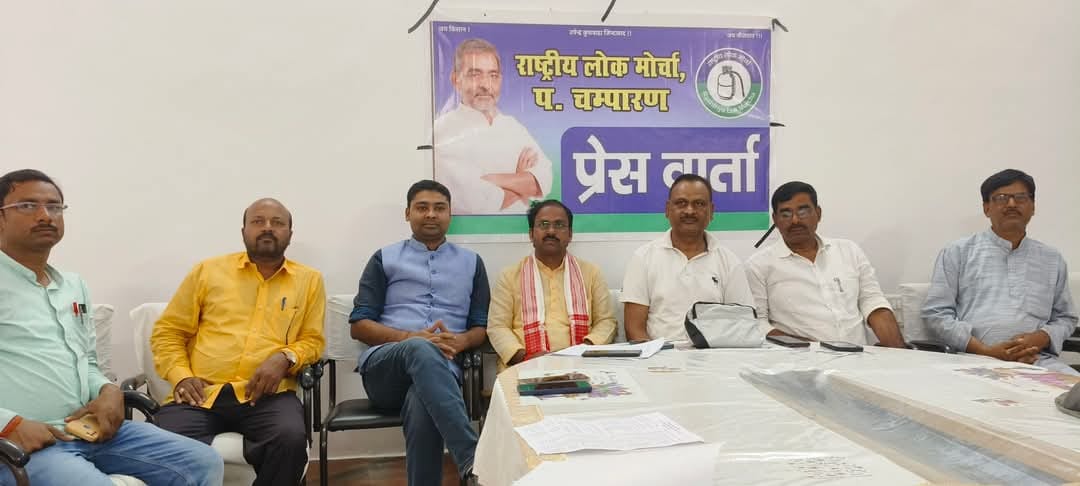Bettiah: Political stirring over the proposed delimitation in India in 2026 is intensifying. The state spokesperson of the Rashtriya Lok Morcha made it clear in a press conference held at Bettiah premises on Tuesday that the party will not back down on the issue of constitutional rights and delimitation reforms. He said, we will die only after fulfilling this resolution. “
The spokesman said that Articles 82 and 170 of the Constitution make provisions for delimitation of Lok Sabha and State Assembly seats respectively. The Lok Sabha seats have been determined so far on the basis of the census of 1951, 1961 and 1971, but the process was disrupted due to the freeze imposed by the then Prime Minister Indira Gandhi in 1976. This freeze was implemented through the 42nd Constitutional Amendment and in 2001 it was extended to 2026.
He said that demarcation took place in 2009, but the total number of Lok Sabha seats remained stable at 543. In the current situation, the large population of North India is getting less representation. According to the spokesperson, “South India has a Lok Sabha seat on an average population of 21 lakhs, while in North India the number has reached 31 lakhs. It is a direct trick with the constitutional spirit of ‘one person, one vote, one value’.”
He also stated that this inequality also affects the distribution of development funds. An annual fund of 5 crore to every MP is being spent on low population in the south states, while in North India, this fund is divided among more population.
Citing history, he said that before independence, North India, especially Bihar, faced a slow population growth by being highly victimized by the British suppression, natural disasters and epidemic. At the same time, between 1881 and 1971 in South India, there was a three -fold increase in the population, which benefited them as increasing the number of Lok Sabha seats.
“When the population of the South was increasing, they were given more seats. But now that the population of North India has increased rapidly, it is being ignored,” he said. Describing this situation as “political discrimination”, he said that it is not only a violation of constitutional rights of the North Indian states, but also gives rise to democratic inequality.
He hopes that the delimitation after 2026 will resume seats according to the population and North India will get its right representation. He also added that the North Indian states including Bihar have made rapid progress in the field of education and population control, and no longer discrimination will be tolerated.
